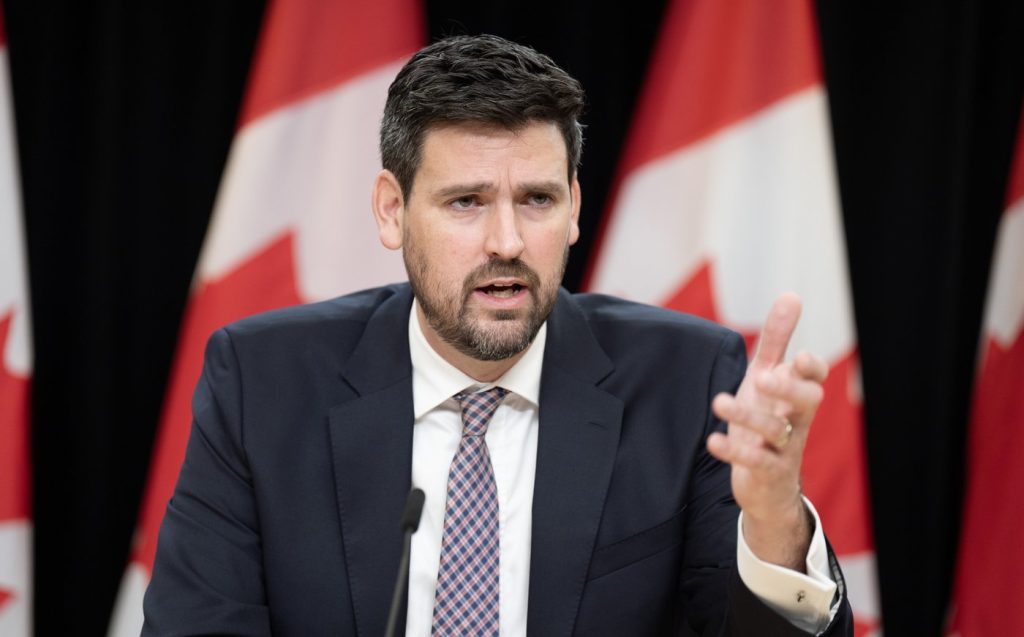Health ministers wrap up meetings in P.E.I. with a plan to grow the health workforce

Posted Oct 12, 2023 07:01:27 PM.
CHARLOTTETOWN — The federal health minister says Canada intends to tackle its health workforce shortages by making it easier for nurses and doctors to practice in other provinces, streamlining credentials for internationally-trained health workers and through a new nursing retention program.
Mark Holland shared the strategies as he wrapped up two days of meetings with his provincial and territorial health minister counterparts in Prince Edward Island Thursday.
“Our plan for a strong and sustainable health workforce is one that is shared by all levels of government and dominated our conversations over the last two days,” Holland said during a news conference.
Holland said while there is much to be proud of in Canada’s health system, “it’s also really stretched.”
“And this is a time particularly in the workforce where we’re facing a crisis and where we have to rise to that occasion.”
The minister laid out a five-part workforce plan, which includes the creation of a so-called “nursing retention toolkit” that will provide employers with guides to creating workplaces where nurses feel supported and want to stay.
The plan involves making it easier for physicians and nurses to work in different Canadian jurisdictions, Holland said, and speeding up the process of regulatory bodies certifying internationally-trained health professionals to hit a 90-day service standard. It will also undertake a study of the number of health workers being educated in Canada to ensure there are enough to meet demand.
The strategy also includes strengthening and sharing standardized health data across the country in order to better plan for future health workforce needs.
“This is critically important to make sure that we don’t just deal with the health workforce issues we’re facing today, but to make sure that we know exactly who we need in the future,” Holland said.
Improving the integration and sharing of health data is a condition of the health accord the prime minister offered premiers in February.
Prime Minister Justin Trudeau offered $196 billion to the provinces and territories over the next 10 years to improve access to health care. That funding includes increases to the federal health transfer and tailored one-on-one agreements to target the specific needs in different jurisdictions.
In exchange, premiers must promise to improve data sharing and empirically measure their progress toward set goals and targets.
British Columbia was the first to sign the first bilateral funding agreement with Ottawa, and all other provinces and territories have agreed to the health accord in principle except for Quebec, which has balked at being accountable to Ottawa for how money is spent.
Quebec’s Minister of Health Christian Dubé said Thursday this issue is a sticking point for his province.
“The transfer from federal had to be without conditions, this is not negotiable for us. We have been very clear that health is a matter of provincial jurisdiction and we stick to that,” Dubé said Thursday.
A footnote on a federal news release Thursday noted that Quebec has not signed any agreement with the federal government and is not bound to the plan put forward Thursday.
Dr. Kathleen Ross, president of the Canadian Medical Association, met with health ministers this week and said she was very pleased to see the plan’s targets aimed at improving health worker recruitment.
“There were so many excellent points made in these commitments, and the action plan that was mapped out today in P.E.I. is really on point,” she said in an interview Thursday evening.
“We need to support our workers, we need more of our workers. We need to train and retain and recruit in order to get where we’re going.”
Ahead of the announcement of the plan, members of the Canadian Health Coalition, P.E.I. Health Coalition, the P.E.I. Federation of Labour and the Canadian Federation of Nurses Unions demonstrated Thursday morning in downtown Charlottetown, calling for urgent universal pharmacare and an end to the privatization of health services.
The federal government has promised to table pharmacare legislation this fall.
When asked about what’s needed in legislation for a federal pharmacare program to work in P.E.I., provincial Health Minister Mark McLane said that a one-size-fits-all model may not work and said that conversations are ongoing.
This report by The Canadian Press was first published Oct. 12, 2023.
— By Lyndsay Armstrong in Halifax.
— With files from Laura Osman in Ottawa.
The Canadian Press








